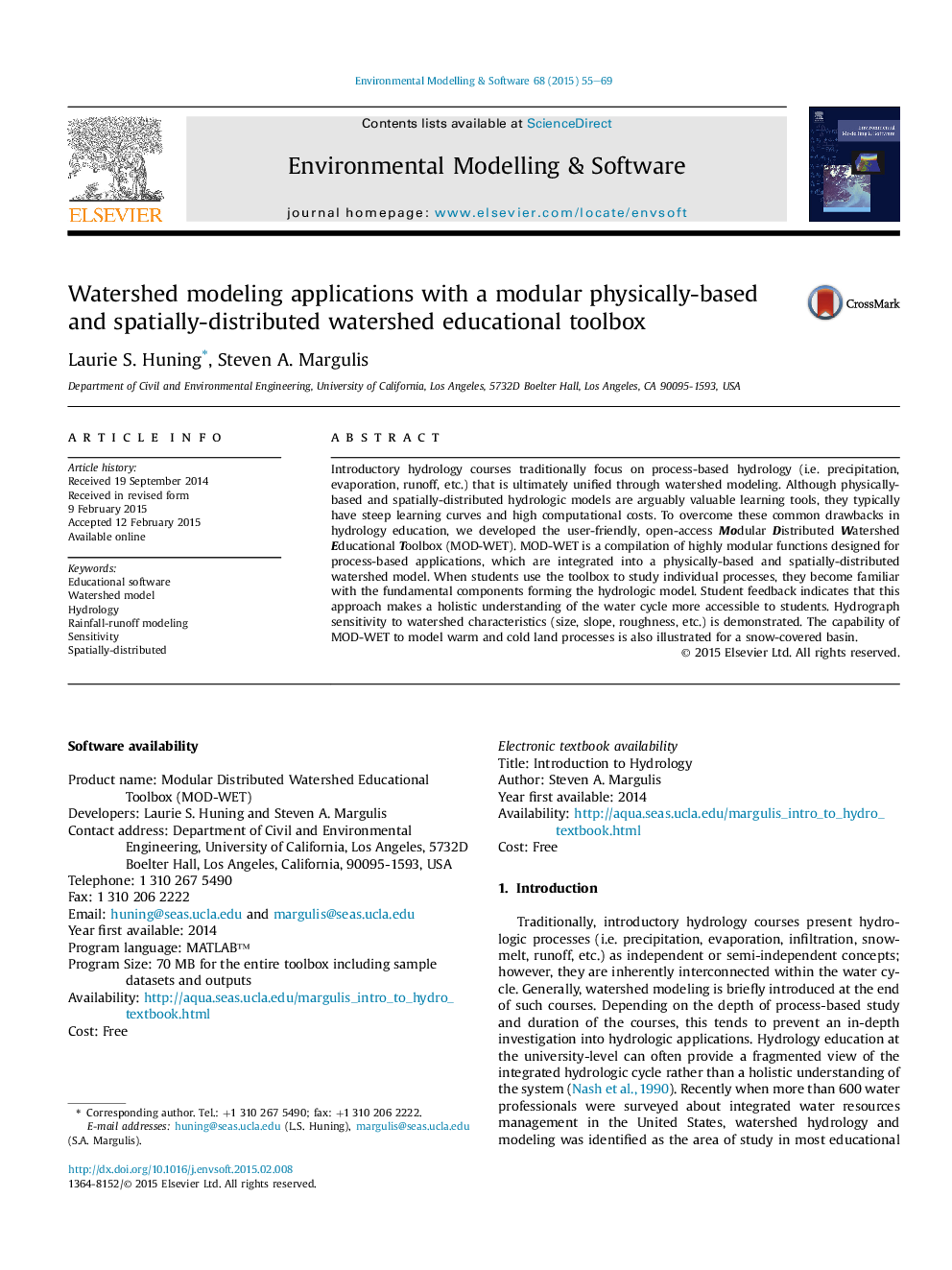| Article ID | Journal | Published Year | Pages | File Type |
|---|---|---|---|---|
| 6963303 | Environmental Modelling & Software | 2015 | 15 Pages |
Abstract
Introductory hydrology courses traditionally focus on process-based hydrology (i.e. precipitation, evaporation, runoff, etc.) that is ultimately unified through watershed modeling. Although physically-based and spatially-distributed hydrologic models are arguably valuable learning tools, they typically have steep learning curves and high computational costs. To overcome these common drawbacks in hydrology education, we developed the user-friendly, open-access Modular Distributed Watershed Educational Toolbox (MOD-WET). MOD-WET is a compilation of highly modular functions designed for process-based applications, which are integrated into a physically-based and spatially-distributed watershed model. When students use the toolbox to study individual processes, they become familiar with the fundamental components forming the hydrologic model. Student feedback indicates that this approach makes a holistic understanding of the water cycle more accessible to students. Hydrograph sensitivity to watershed characteristics (size, slope, roughness, etc.) is demonstrated. The capability of MOD-WET to model warm and cold land processes is also illustrated for a snow-covered basin.
Related Topics
Physical Sciences and Engineering
Computer Science
Software
Authors
Laurie S. Huning, Steven A. Margulis,
